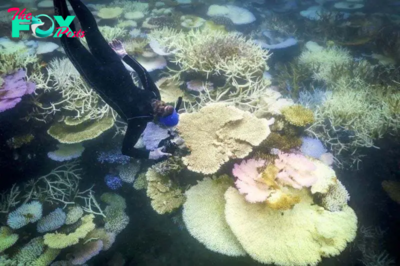Technology
Revolutionary discovery: China finds water in lunar soil
Chinese scientists have uncovered a novel method of generating significant quantities of water using lunar soil, as reported by state broadcaster CCTV on Thursday. This breakthrough stems from soil samples retrieved during China's 2020 Chang'e-5 mission, the first mission to bring back lunar samples in 44 years.
Researchers from the Chinese Academy of Sciences found that the minerals within the moon's soil contain substantial amounts of hydrogen, which can react with other elements to produce water vapour when exposed to extremely high temperatures.
Following three years of extensive research, scientists have developed a method to extract large amounts of water from lunar soil. This discovery is expected to play a crucial role in the design and construction of future lunar research stations and space stations, according to CCTV. The ability to produce water from lunar resources could significantly aid China's long-term project to establish a permanent base on the moon, amidst growing comPetition with the United States to exploit lunar resources.
The method is capable of generating 51 to 76 kilograms of water from one tonne of lunar soil, enough to provide the daily water consumption of 50 people, equivalent to over a hundred 500ml bottles. This discovery holds great promise for supporting China's ambitions to build the International Lunar Research Station (ILRS) in collaboration with Russia. China's space agency aims to complete a basic lunar station by 2035, with a moon-orbiting space station set to be added by 2045.
The announcement follows the recent Chang'e-6 mission, which collected soil samples from the moon's far side.
Lunar water is seen as essential not only for sustaining human presence but also for creating hydrogen rocket fuel, which could further space exploration to Mars and beyond, according to NASA’s administrator Bill Nelson.
-

 Technology4h ago
Technology4h agoWhy a Technocracy Fails Young People
-

 Technology16h ago
Technology16h agoTransplanting insulin-making cells to treat Type 1 diabetes is challenging − but stem cells offer a potential improvement
-

 Technology21h ago
Technology21h agoShould I worry about mold growing in my home?
-

 Technology21h ago
Technology21h agoBlurry, morphing and surreal – a new AI aesthetic is emerging in film
-

 Technology1d ago
Technology1d agoSpaceX’s Starship advances in spaceflight despite booster landing failure | The Express Tribune
-

 Technology1d ago
Technology1d agoGreat Barrier Reef faces 'significant coral deaths' following recent climate events | The Express Tribune
-

 Technology1d ago
Technology1d agoMeta to challenge India's data-sharing restrictions between WhatsApp, other apps | The Express Tribune
-

 Technology1d ago
Technology1d agoMerlin inks £85m deal to bring Minecraft attractions to UK, US parks by 2026-2027 | The Express Tribune



















